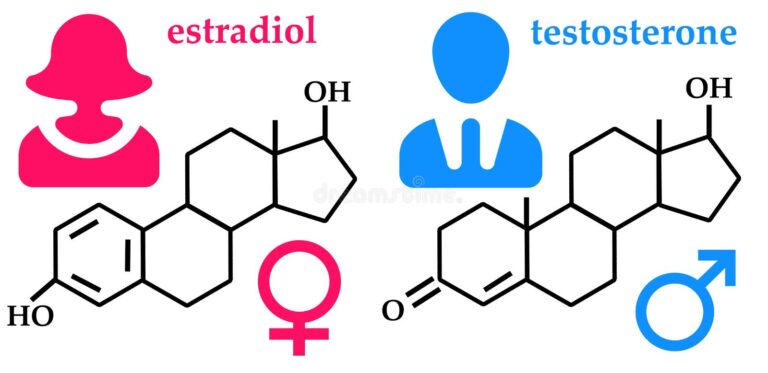Food Allergies and Intolerances: Separating Fact from Fiction
Food allergies and intolerances can be confusing and frustrating to deal with. Many people use the terms interchangeably, but they are actually two different things. A food allergy is an immune system response to a specific food, while a food intolerance is a digestive system response to food that your body can’t properly digest.
Food allergies can be serious and even life-threatening, while food intolerances are typically less severe. However, both can cause uncomfortable symptoms and affect your quality of life. It’s important to understand the difference between the two and know how to manage them to stay healthy and avoid potential complications. In this article, I will explore the truth about food allergies and intolerances, including common symptoms, causes, and treatment options. We will also debunk some common myths and misconceptions surrounding these conditions.
Food Allergies vs. Food Intolerances
When it comes to food, people often use the terms “food allergy” and “food intolerance” interchangeably. However, there are fundamental differences between the two that are important to understand. In this section, I will explore what food allergies and food intolerances are and their key differences.

What Are Food Allergies?
Food allergies occur when the immune system mistakenly identifies a specific food as harmful and produces an allergic reaction. This reaction is triggered by the production of immunoglobulin E (IgE) antibodies, which recognize and respond to the allergen. The symptoms of a food allergy can range from mild to severe and can include hives, itching, swelling, abdominal pain, diarrhea, and anaphylaxis.
What Are Food Intolerances?
Food intolerances occur when the body has difficulty digesting certain foods. Unlike food allergies, food intolerances do not involve the immune system. Instead, they are caused by a deficiency in enzymes or other substances needed to digest certain foods. Common examples of food intolerances include lactose intolerance, celiac disease, and sensitivities to certain foods.
Key Differences Between Food Allergies and Intolerances
The table below summarizes the key differences between food allergies and intolerances:
| Food Allergies | Food Intolerances |
| Involves the immune system | Does not involve the immune system |
| Triggered by IgE antibodies | Not triggered by IgE antibodies |
| Can be life-threatening | Usually not life-threatening |
| Symptoms can occur rapidly and can be severe | Symptoms can take longer to appear and are usually less severe |
| Even a small amount of the allergen can trigger a reaction | Larger amounts of the food are needed to trigger a reaction |
In summary, food allergies and food intolerances are two different types of reactions that can occur when we consume certain foods. Food allergies involve the immune system and can be life-threatening, while food intolerances do not involve the immune system and are usually not life-threatening. Understanding the key differences between the two can help us make informed decisions about our diet and health.
Symptoms of Food Allergies and Intolerances
If you suspect that you have a food allergy or intolerance, it is essential to know the symptoms. Understanding the symptoms can help you identify the problem and seek the right medical attention.
Common Symptoms of Food Allergies
Food allergies occur when your immune system identifies a particular food as harmful and triggers an immune reaction. The most common symptoms of food allergies include:
- Tingling or itching in the mouth
- Hives, itching, or eczema
- Swelling of the lips, face, tongue, and throat or other parts of the body
- Wheezing, nasal congestion, or trouble breathing
- Abdominal pain, diarrhea, nausea, or vomiting
- Dizziness, lightheadedness, or fainting
- Anaphylaxis
Anaphylaxis is a severe allergic reaction that can be life-threatening and requires immediate medical attention. Symptoms of anaphylaxis include difficulty breathing, a rapid heartbeat, a sudden drop in blood pressure, and loss of consciousness.
Common Symptoms of Food Intolerances
Food intolerances occur when your body has difficulty digesting a particular food. Unlike food allergies, food intolerances do not involve the immune system. The most common symptoms of food intolerances include:
- Abdominal (belly) pain
- Diarrhea
- Gas and bloating
- Headaches or migraines
- Heartburn
- Nausea
- Upset stomach

If you have a food intolerance, you may be able to eat small amounts of the food without experiencing symptoms. However, consuming larger amounts can trigger symptoms.
It is important to note that food allergies and intolerances can have overlapping symptoms. For example, some people with food intolerances may experience hives or eczema. It is always best to consult an allergist or healthcare provider to determine whether you have a food allergy or intolerance.
If you suspect that you have a food allergy or intolerance, keeping a food diary can help you identify the problem. You can also try an elimination diet, which involves removing suspected foods from your diet for a period and then reintroducing them one at a time to see if symptoms occur.
Research has shown that certain foods are more likely to cause allergies or intolerances, such as peanuts, shellfish, tree nuts, soy, fish, dairy products, eggs, and wheat. Food additives, such as sulfites, can also trigger symptoms in some people.
If you have a food allergy, it is important to carry an EpiPen, which is an emergency injection of epinephrine that can help counteract severe allergic reactions. Antihistamines and other allergy medications can also help alleviate symptoms.
In conclusion, understanding the signs and symptoms of food allergies and intolerances is crucial for maintaining good health. If you suspect that you have a food allergy or intolerance, consult an allergist or healthcare provider for proper diagnosis and treatment.
Diagnosis and Treatment
When it comes to food allergies and intolerances, it’s important to get a proper diagnosis and treatment plan in place. In this section, I’ll cover the basics of diagnosing and treating food allergies and intolerances, as well as some tips for preventing them.
Diagnosing Food Allergies and Intolerances
If you suspect you have a food allergy or intolerance, the first step is to see an allergist. They can perform tests to determine if you have an allergy or intolerance and what specific foods you should avoid. There are a few different types of tests that may be performed:
- Skin test: A small amount of the allergen is placed under the skin to see if there is a reaction.
- Blood test: A sample of blood is taken and tested for antibodies to specific allergens.
- Oral food challenge: Small amounts of the suspected food are consumed under medical supervision to see if there is a reaction.
Once you have a diagnosis, it’s important to take steps to avoid the allergen. This may include reading ingredient labels carefully, carrying an epinephrine auto-injector (such as an EpiPen), and wearing a medical alert bracelet.
Treating Food Allergies and Intolerances
If you do have a food allergy, the best treatment is to avoid the allergen. However, if you accidentally consume the allergen, there are a few treatments that may help:
- Epinephrine: This medication can be self-administered with an auto-injector (such as an EpiPen) and can help stop a severe allergic reaction.
- Antihistamines: These medications can help relieve mild to moderate allergy symptoms, such as hives or itching.
If you have a food intolerance, the treatment may depend on the specific intolerance. For example, if you are lactose intolerant, you may need to take lactase supplements to help digest dairy products.
Preventing Food Allergies and Intolerances
While there is no surefire way to prevent food allergies and intolerances, there are a few steps you can take to reduce your risk:
- Introduce new foods slowly and in small amounts.
- Avoid common allergens, such as peanuts, tree nuts, shellfish, and soy, if you have a family history of allergies.
- Read ingredient labels carefully and avoid foods that contain ingredients you are sensitive to.
By taking these steps and working with your allergist to develop a treatment plan, you can manage your food allergies or intolerances and live a healthy, happy life. Remember to always carry your epinephrine auto-injector and wear a medical alert bracelet in case of an emergency.
The Future of Food Allergy and Intolerance Research
The future of food allergy and intolerance research is exciting. There are many ongoing studies and clinical trials that are showing promising results. Here are some of the areas that are being researched:
- Immunotherapy: This is a treatment that involves exposing the patient to small amounts of the allergen in order to build up their tolerance over time. Currently, this treatment is effective for some individuals with food allergies, but it requires continued ingestion of the allergen to maintain desensitization. Researchers are working to improve the effectiveness and safety of this treatment.
- Genetic research: Scientists are investigating the genetic factors that contribute to food allergies and intolerances. This research could lead to a better understanding of why some individuals are more susceptible to these conditions than others.
- New treatments: Researchers are exploring new treatments for food allergies and intolerances. Some of these treatments include using monoclonal antibodies to block the action of immunoglobulin E (IgE), which is the antibody that triggers allergic reactions. Other treatments involve blocking the action of histamine or mast cells, which are also involved in allergic reactions.
- Prevention: Researchers are also working on ways to prevent food allergies and intolerances from developing in the first place. One area of research is focused on the gut microbiome, which is the collection of microorganisms that live in the digestive tract. Studies have shown that the gut microbiome plays a role in the development of the immune system, and researchers are investigating whether manipulating the gut microbiome could prevent food allergies and intolerances.
Overall, I am optimistic about the future of food allergy and intolerance research. With continued research and development, I believe that we will be able to improve the lives of millions of individuals who suffer from these conditions.







